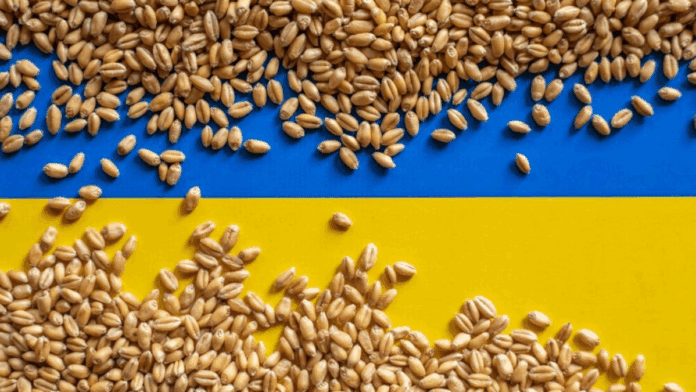Ukraine has made a strong appeal to the European Union, asking for sanctions against certain Bangladeshi entities. The reason? Ukraine claims these businesses are importing wheat that has been taken from Ukrainian lands currently under Russian control.
Since parts of Ukraine were taken over by Russia in 2014—and more so after the 2022 invasion—Kyiv has accused Russia of stealing its grain. These agricultural lands, especially in the southern regions, are rich in wheat and other crops. Ukraine says that Russia is mixing grain harvested from these occupied Ukrainian regions with its own and then selling it internationally.
The Ukrainian government says some of this mixed grain is ending up in Bangladesh. Officials say they have tried to warn Bangladesh several times this year. In fact, Ukraine’s embassy has sent four letters to the Bangladeshi government. The letters named specific ships and included details like registration numbers and travel dates to show how and when exporters moved the wheat from Russian ports to Bangladesh.
However, Ukraine says Bangladesh has not responded to any of these letters. Now, Kyiv says it is ready to take the issue to the European Union and push for strong actions. Ukrainian diplomats have stated that the grain is being exported from ports located in Crimea and other regions seized by Russia. Ukraine considers this grain “stolen” and any trade involving it to be illegal.
Threat of Sanctions Against Bangladeshi Companies
In one of the letters sent this June, Ukraine warned Bangladesh about serious consequences. The letter said that buying this grain could lead to sanctions—not just on the companies importing the wheat but also on government officials who allow it to happen.
Ukraine stressed that purchasing grain from occupied territories fuels a serious humanitarian crisis. Ukrainian officials believe that this kind of trade supports the war effort against them and makes life harder for Ukrainians still living in those areas.
One Ukrainian official said that Ukrainian law makes it illegal for farmers to trade with Russia. This means grain from occupied areas cannot be sold legally. If the grain supports Russia in any way, it is considered illegal under Ukrainian rules.
A food ministry official from Bangladesh, when asked about the matter, said the country does not import stolen grain and has rules in place to block wheat coming from occupied Ukrainian territories. Still, according to Ukrainian intelligence, this is not what’s happening on the ground.
Ukrainian diplomats say their investigations show that Russia is deliberately mixing wheat from Ukrainian farms with Russian-grown wheat. This makes it hard to track the exact source of the grain. When exporters ship grain from Russian ports like Kavkaz, they often hide its true origin.
EU Reacts to Ukraine’s Concerns Over Grain Imports
The European Union has not yet sanctioned the ships mentioned in Ukraine’s letters. However, an EU spokesperson said the rules are already in place to punish anyone involved in actions that harm Ukraine’s food security.
Kyrgyz arms dealer Sergei Zharnovnikov pleads guilty to smuggling $1.5M in U.S. weapons to Russia
The EU has already banned 342 ships linked to what it calls Russia’s “shadow fleet”. This fleet is used to get around Western rules and continue trading in oil, weapons, and grain. Now, Ukraine wants the EU to take the next step and add vessels connected to the alleged stolen grain trade to this list.
A trader familiar with the Russian grain business admitted that it’s tough to tell where the wheat really comes from. Unlike diamonds or gold, people can’t trace grain by its appearance or content. Once exporters mix and ship them from a Russian port, they make it hard for authorities to identify its origin.
Data shows that Bangladesh was the fourth-largest buyer of Russian wheat in May. This adds weight to Ukraine’s claim that a large volume of wheat may have entered Bangladesh from regions under Russian control.
In a recent case, Ukraine detained a foreign ship in its waters, accusing it of carrying stolen grain. A similar incident happened last year when Ukraine held a ship captain under the same suspicion.
For now, Ukraine has passed all its findings to the EU and is awaiting further action. As the war with Russia continues, Ukraine sees its agriculture exports as a lifeline—and it wants the world to make sure this trade is fair and legal.
